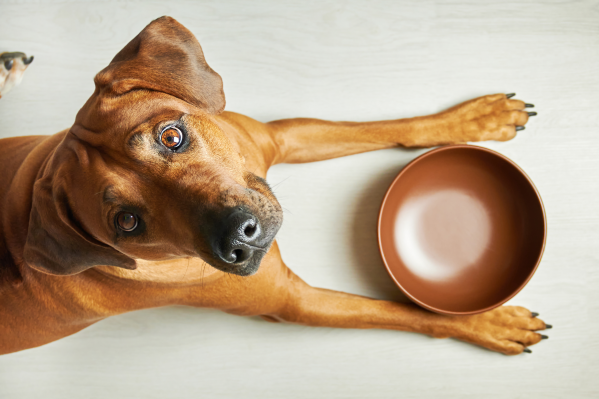Raw food diets for pets have become popular over the last few years. For some, the idea of feeding your pup or feline friend raw or undercooked animal protein might seem appealing. There are many risks, however, to feeding your pet raw meat, eggs, and dairy.
The risks from feeding your pet raw food aren’t only to your dog or cat—having your pet eat raw food in your home is also a potential danger to the humans living there, and can also contribute to larger public health issues. Read on to learn more about the science-backed studies that highlight the risks associated with pets eating a raw food diet.
Are raw food diets good for dogs and cats?
Pawp, as well as the American Veterinary Medical Association (AVMA), do not recommend raw food diets for pets. While there are anecdotal reports that raw food diets have helped a pet’s health, there is no science-backed evidence that supports these claims.
High risk of food-borne diseases
Several studies show that feeding your pet raw food comes with several risks. One of the major risks from this type of diet is that the food, which by definition is raw, contains bacteria that can be harmful to a pet’s—and a person’s—health. Properly cooked food doesn’t have this issue, as the cooking process kills off harmful bacteria.
“Raw diets can be a public health hazard due to the risk of food-borne diseases carrying bacterias such as E. Coli, Salmonella and Listeria,” explains Dr. Yui Shapard. “All of these bacterias can potentially make not only the pet very ill, but also the person or people around them, particularly immune-compromised individuals such as the elderly or pregnant.”
Animals with diseases such as pancreatitis or cancer also have a higher risk of becoming sick from the bacteria in raw food and should only be on a cooked food diet.
Higher risk of stomach issues and nutritional deficiency
Many raw diets also contain bone or bone fragments, which can cause your pet’s teeth to facture and/or cause stomach issues, including puncturing their intestine.
Raw food diets aren’t regulated, so there’s also a risk that the raw diets for sale do not have the right nutrition balance for your dog or cat.
Increased microbial resistance in bacteria
A recent study also provides evidence that raw food diets can encourage the development of antibiotic resistant bacteria. This bacteria isn’t only a danger to your pet and yourself, but also contributes to the wider global health problem of antimicrobial resistance.
“Antimicrobial resistance is a serious concern that can affect all of us, since this means that the many antibiotics we have relied on in the past to combat serious infections are no longer effective,” says Dr. Shapard. “This usually affects the most marginalized and impoverished communities domestically and world-wide.”
The science-based studies that outline these issues and risks have led the AVMA and Pawp to not recommend raw food diets for pets.
“The veterinary community cannot and will not endorse raw food diets at this time, as we are a science-driven community with strength in public health,” explains Dr. Shapard. “There are simply not enough evidence-based findings to support nor justify the feeding of a raw food diet, particularly when there are commercially available, well-balanced and safe diets out there that have gone through a stringent testing and verification process by board-certified veterinary nutritionists.”
Looking forward
The AVMA and Pawp’s stances may change if future, evidence-based studies prove there are significant benefits to feeding a pet raw food. What we do know now, however, is that there are real dangers from feeding pets raw food. Because of these studies, both organizations do not advocate putting your pet on a raw food diet.
If you want to find out the diet that works best for your specific pet, the experts at Pawp are here to help you 24/7. You can also ask your local veterinarian what diet would be best for your furry friend.
“Your veterinary team can provide you with resources and recommend a variety of safe alternative options to meet your needs in making sure that your pet is getting the best food possible,” says Dr. Shapard.
